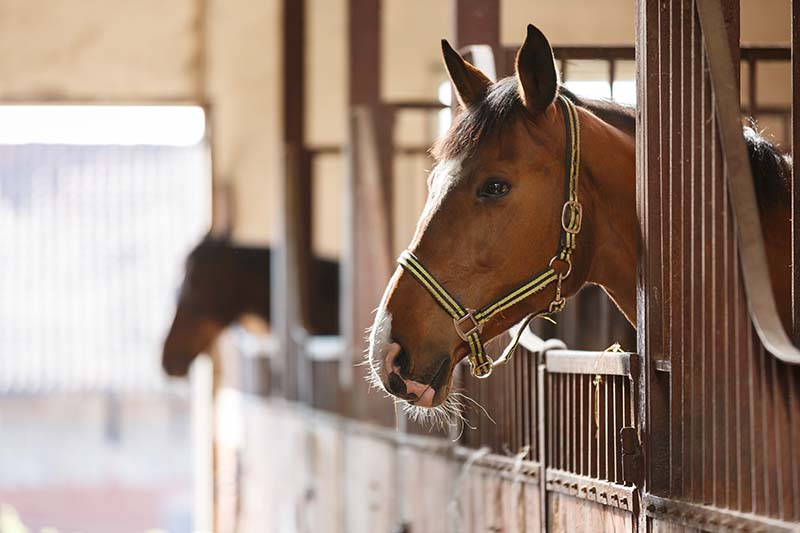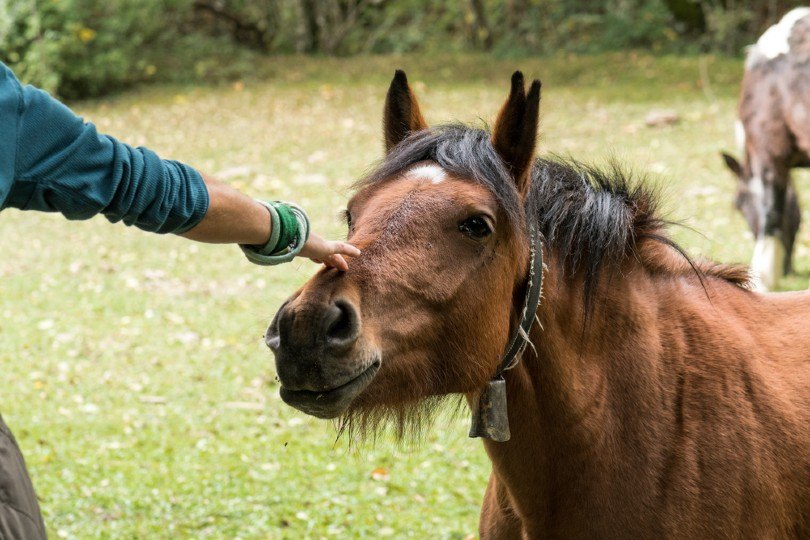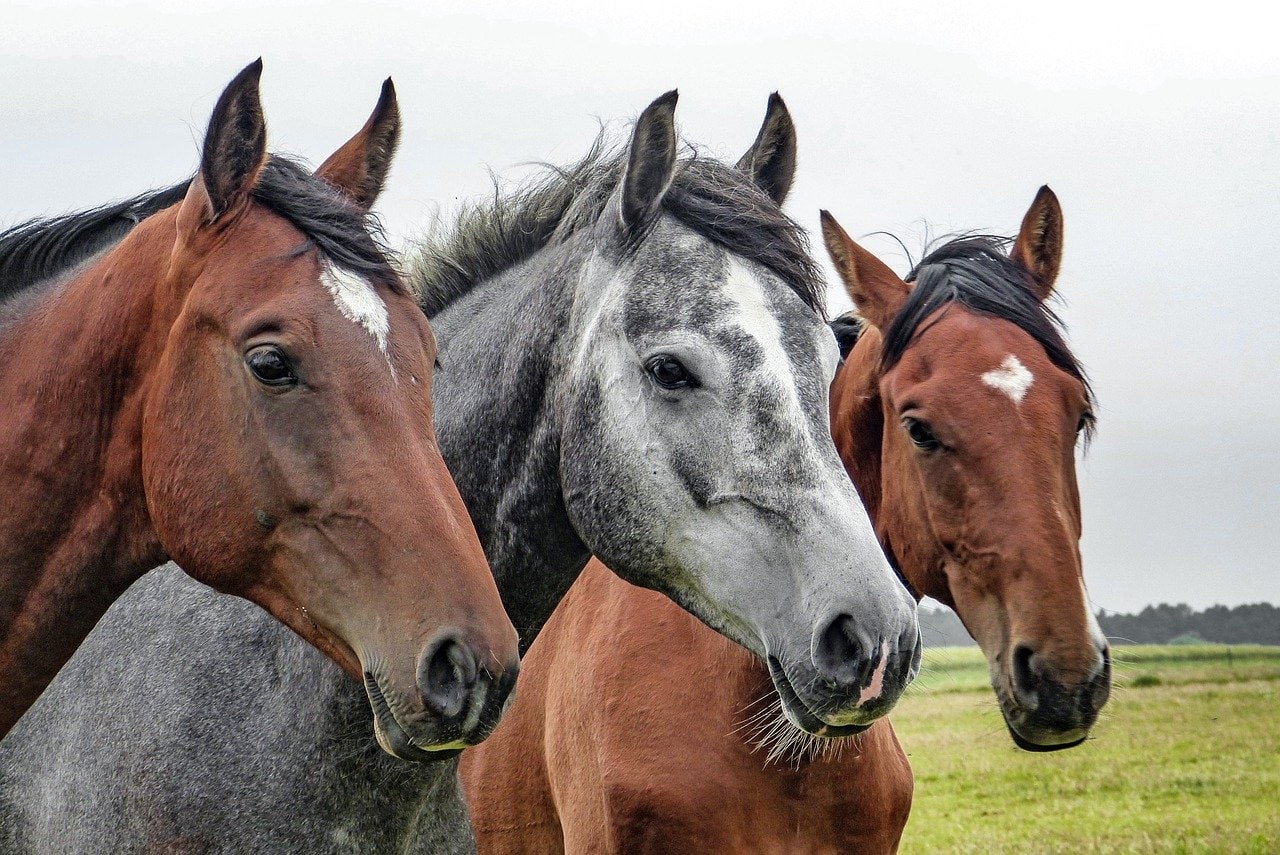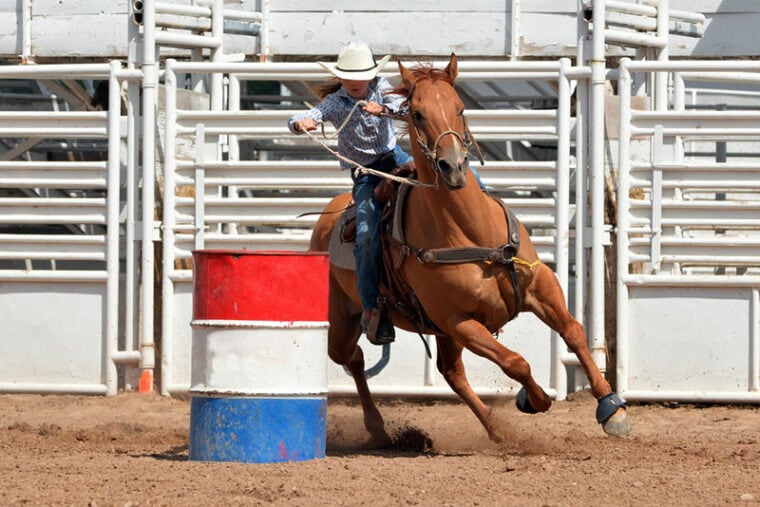
Horses used for barrel racing must have top-notch speed and agility. They’ve got be fast enough to reach great speeds in the short, straight stretches and agile enough not to lose too much of that speed while making tight turns around barrels. Horses that may excel in flat races might not have what it takes to compete at a high level in barrel racing as it’s quite different from other forms of horse racing.
Traditionally, one breed of horse has been king of the barrel racing scene. In fact, almost every rider at the top of the sport is riding the same breed of horse. But that doesn’t mean there are no other breeds seeing success in competition. At lower-level competitions, there are quite a few breeds that have started to make appearances. The following 10 breeds all have what it takes to make great barrel racers, if you put the time into training them!
The 10 Barrel Racing Horse Breeds
1. Quarter Horse
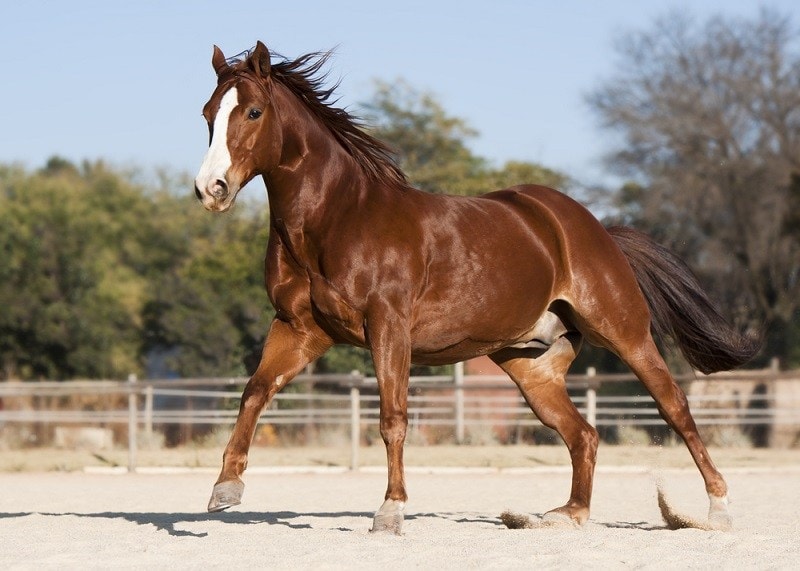
Quarter Horses are the top choice for any barrel racer. All of the top pros are currently racing barrel horses to victory. These horses are incredibly fast, with some able to reach speeds of up to 55 miles per hour. This makes them the fastest horses of all. The fastest thoroughbred has only been clocked at 44 mph and the average horse runs at just 27 mph.
It’s not just speed that makes Quarter Horses the best barrel racers. They’re also extremely agile creatures that can make the tight turns necessary for barrel racing with ease. Furthermore, they’re known for having calm, trainable temperaments that make them easy to work with on a daily basis.
2. Thoroughbred

When many people think of racehorses, Thoroughbreds come to mind. When you’re talking about major races like the Kentucky Derby, Thoroughbreds are the top choice. Though they’re not as fast as Quarter Horses in short stretches, Thoroughbreds can maintain their speed for longer. However, that’s not as much of an advantage in a short barrel race.
Thanks to their impressive speed, Thoroughbreds can still make great barrel racing horses. They’ve also been bred with Quarter Horses; the result is known as an Appendix Quarter Horse, and they’re also known for being great barrel racers.
3. Appaloosa
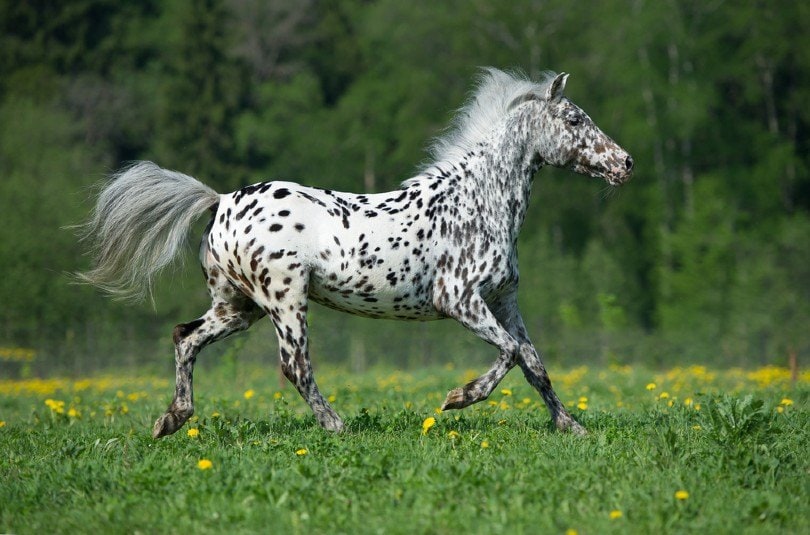
Appaloosas are known for being versatile horses with great endurance. Endurance isn’t a major factor in a barrel race, but these horses are also quite fast, which does help in any racing format. Plus, when the breed was being saved from endangerment at the end of the 1800s, they were crossed with Quarter Horses, which gives them many of the same traits that are great for barrel racing.
This breed is also known for its friendliness. They’re commonly used as family horses or even for children because of their good-natured temperaments. This makes them easier to train and work with than other breeds, which is a great trait for any barrel racing horse.
4. Paint Horse

Paint Horses are commonly associated with Native Americans as the breed was favored by them for its coloration. The color pattern a Paint Horse exhibits creates a sort of natural camouflage that the Native Americans prized. But these horses had many other desirable traits as well. For instance, one of the defining characteristics of Paint Horses is their intelligence.
Beyond their smarts, Paint Horses are known for displaying high levels of athleticism. They’re powerful horses that can reach high speeds in a short time, which is great for getting back to speed after rounding a tight corner around a barrel. Plus, many Paint Horses have a lot of Quarter Horse blood in their veins due to crossbreeding.
5. Mustang
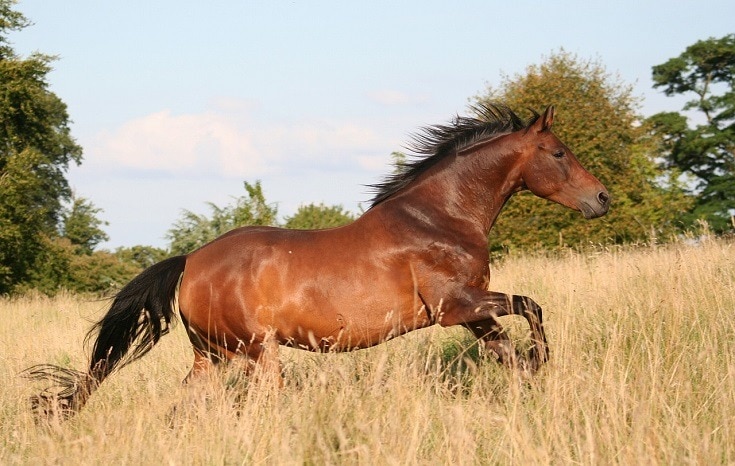
Mustangs are feral horses that live wild across parts of the US. They’re fast and agile horses that tend to be on the smaller side, weighing less than 1,000 pounds. Occasionally, the Bureau of Land Management rounds up many of these Mustangs to prevent overpopulation, selling them at low prices to whoever wants them.
Feral horses require a ton of training before they can be used for a sport like barrel racing. But Mustangs tend to naturally display the type of traits you’d be looking for in a barrel racer; at least physically. Of course, each Mustang is different, so there’s no guarantee that any particular specimen will be a great barrel racer with training.
6. Arabian
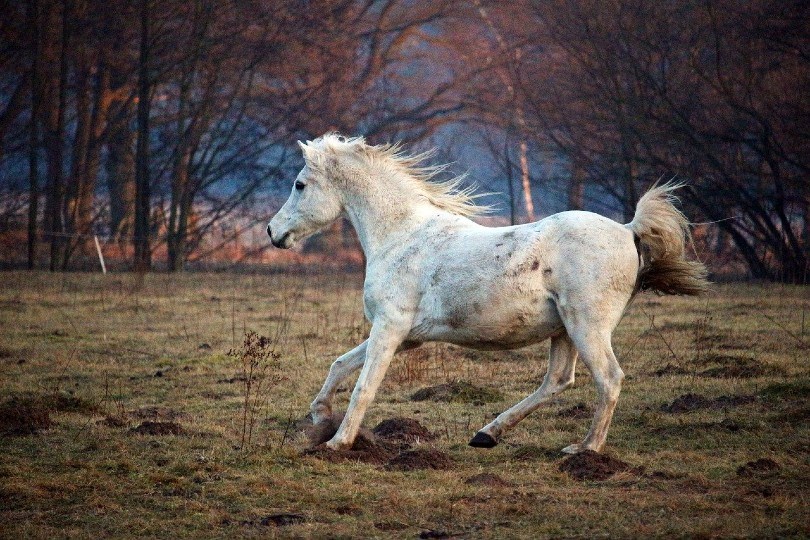
Arabians are natural-born racers that have excelled in many types of horse racing. They’re incredibly fast with outstanding endurance. Arabians also have light frames that make it easy for them to make the tight turns required in a barrel race.
Beyond the physical qualifications of an Arabian, they’re also extremely intelligent animals that can be trained to learn just about anything.
7. Australian Stock Horse

According to the Australian Stock Horse Society, the Australian Stock Horse might be the world’s most versatile horse. They have calm demeanors with high levels of intelligence that make them trainable for just about any application. They’re also known for their excellent athletic prowess. These are fast, agile horses that can do well in all forms of racing, including barrel racing.
8. Friesian
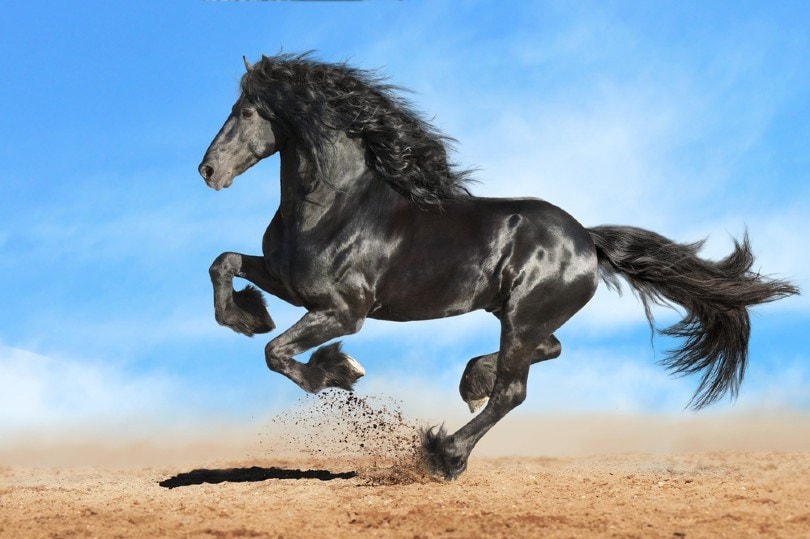
Friesians are beautiful horses that are instantly recognizable thanks to their long, flowing manes and tails, with hair around their feet that makes it appear as though the horse is wearing boots.
On top of being stunning in appearance, Friesians are also great to train thanks to their willingness to learn and their high levels of intelligence. These are small but robust horses that are covered in muscle, which may protect them from injury in such a demanding riding discipline.
9. Pony of the Americas

A Pony of the Americas, abbreviated as POA, is a bit smaller than other breeds, standing between 11 and 14 hands in height. They look similar to Appaloosas, though on the smaller side. They’re the perfect size for aspiring barrel racers who haven’t quite reached adulthood, and they’re commonly used for exactly that. These ponies have proven themselves to be adequate barrel racers for teens and small riders and you can see them barrel racing in rodeos around the country.
10. Grade Horses

Grade Horses aren’t actually a breed. They’re sort of like mutts with unknown parentage, so they could be crosses of just about anything. In most equine sports, strict rules allow only purebred horses to compete, but barrel racing doesn’t have the same requirements, so grade horses can still barrel race.
With Grade Horses, it’s hit or miss whether your horse will be suitable for barrel racing. There are so many breeds that could have entered into their bloodline at some point. But the same things that make other breeds successful at barrel racing can work for a Grade Horse if you find one with those characteristics.
What Is Barrel Racing?
If you’ve ever been to a rodeo, you might have noticed that most of the events are male-dominated. Roping, steer wrestling, and the big draw of riding broncos as they buck wildly are all sports filled with men. But barrel racing is a women’s only rodeo sport that sees women on horseback charging at full speed in a clover pattern around three barrels.
For a barrel race, three barrels are arranged in a triangle shape. The rider will make as tight of a circle around each of the three barrels as possible. Riders compete one at a time to make it around the barrels and back to the start in the fastest time. They will cut as close to the barrels as possible to shave milliseconds off of their times, but if they accidentally knock a barrel over, they’ll receive a 5-second penalty.

Barrel Racing Horses
Obviously, barrel racing horses need to be quick, but there are other traits that a horse must display to be a good barrel racer. They must be highly coordinated and agile so they can make the incredibly tight turns around the barrels without knocking them over. Acceleration must be top-notch so the horse can achieve full speed in the short distance between barrels.
Physical traits aren’t the only ones that matter when discussing barrel racing horses. It’s also a matter of mentality. A barrel racing horse must be trainable. It must be calm under pressure, but also have that explosive fire waiting for when the race starts. And of course, the horse must have the proper bond with the rider.
Conclusion
Barrel racing is a special sport for many reasons. It’s far different from other forms of horse racing, as agility and acceleration are prized more than top speed, though the fastest sprinters tend to still win the race. It takes a lot of concentration, agility, and speed to come out on top of a barrel race. Plus, it’s the only women-only sport in pro rodeo. Though Quarter Horses tend to rule the race, there’s still room for other breeds to come in and make their mark.
Looking for more interesting horse breeds? Check these out:
- What Horse Breeds Do Police Use? (with Pictures)
- 8 Greek Horse Breeds (with Pictures)
- 7 Australian Horse Breeds (with Pictures)
Featured Image Credit: Diane Garcia, Shutterstock



